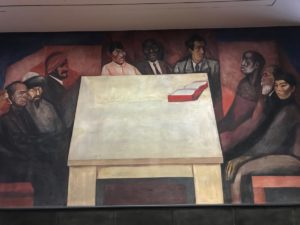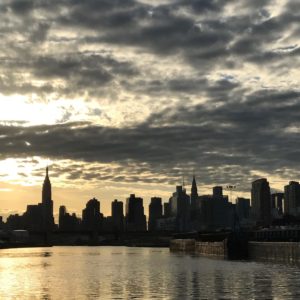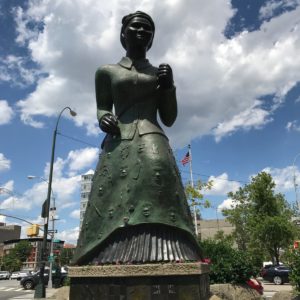By Wenrui Chen, 06/16/2017. Having lived in NYC while completing my doctorate at NYU, I returned to the city this past May as an India China Institute CISLI Fellow. Being in the city reminded me why I applied to be a CISLI Fellow and the unique combination of resources drawn together in the India China Institute.

Prior to this fellowship, my doctorate work focused on psychotherapy in Beijing, China. Urban China is experiencing a “psycho-boom” as urbanites turn to psychotherapy for help dealing with the stresses and insecurity brought on by fast but uneven economic and social development. My research took me into family therapy sessions where I was able to see first hand the price of material prosperity for urban families. This is especially so for those with children who are slotted into uber-competitive environments from a young age even as the Chinese Communist Party withdraws social welfare support.
The story of China’s “psycho-boom” is clearly a China story, a product of China’s particular history and culture. But the struggles of the families in therapy are in ways familiar and relatable across cultures and borders. Urban Chinese parents are not alone in their worries for their children’s futures. India and China in particular have both seen fast if uneven economic growth and massive population growth. Both also have a long history of mutual trade and exchange, economic and cultural. Yet few scholars have taken India and China seriously as comparative subjects for research. This includes myself prior to the CISLI Fellowship.

What drew me to CISLI is it’s inter-national, inter-disciplinary approach to understanding contemporary human society and living. This emphasis on interconnections is reflected in the India China Institute’s physical location in NYC. In our month long NYC residency, I met and engaged with a wide array of scholars and professionals, across different disciplines and vocations. This is in many ways only possible in a city like NYC that draws in a diversity of people with varied interests. The India China Institute is able to capitalize on the resources of the city in a way other organizations cannot because its focus is geographical, rather than topical or by discipline. I had long conversations with and learned new things from my fellow CISLI scholars, whose projects were different from mine.

Brought together by CISLI, these interactions have opened up my research in unforeseen and invaluable ways. I now see urban India as another important site of psychotherapeutic growth. In my upcoming posts as a CISLI Fellow, I eagerly look forward to writing about my comparative research on psychotherapy in urban India and China and the resulting insights into the complexities of human life in our contemporary age.
